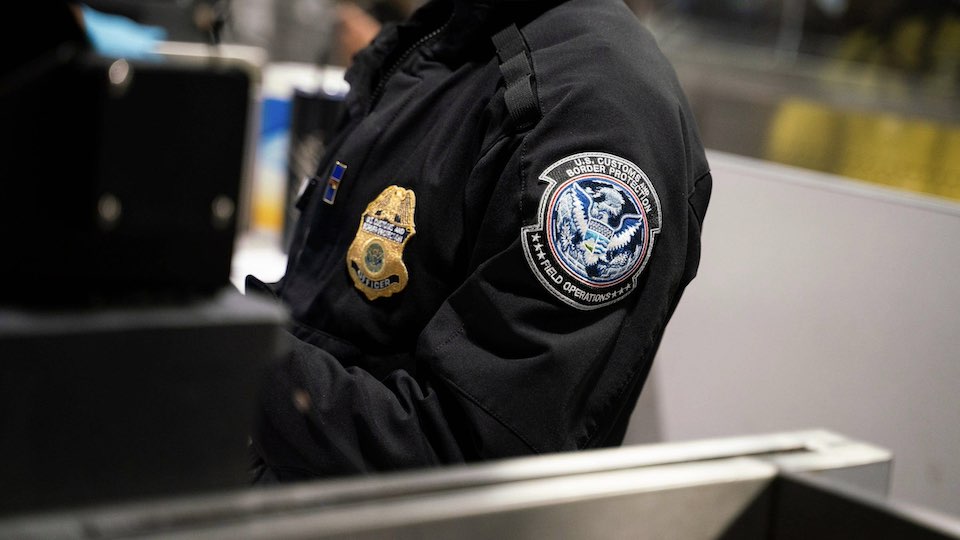US: Federal court finds phone searches at the border unconstitutional

A US federal court has ruled that border patrol agents need a warrant to search cell phones and other electronic devices belonging to travelers. The ruling applies only to the Eastern District of New York – which includes John F. Kennedy International Airport (JFK), a major point of entry into the US.
US Customs and Border Protection (CBP) claims the authority to search electronic devices as part of the inspections it conducts at all ports of entry. On its website the agency states that “all persons, baggage and merchandise arriving in, or departing from, the United States are subject to inspection by CBP” – this includes “all electronic devices crossing our nation’s borders.”
According to CBP, in the 2023 fiscal year, the devices of “only” about 41,700 international travelers were searched.
Last week however the United States Court for the Eastern District of New York ruled that officers must obtain a search warrant before they conduct such an inspection.
Civil liberties experts criticize unconstitutional searches
The Knight First Amendment Institute at Columbia University in New York City cheered the ruling. The institute, together with the Reporters Committee for Freedom of the Press, had filed an amicus brief in the case arguing that warrantless searches of cell phones at the border violate the US Constitution. The judge in the case “relied heavily on the amicus brief in issuing her ruling,” the institute wrote in a press release.
The Knight Institute based its argument against warrantless searches on the First Amendment’s protections of the freedoms of the press, speech, and association. The amicus brief also invoked the Fourth Amendment, which protects against “unreasonable searches and seizures” and specifies that search warrants cannot be issued without probable cause and without “particularly describing the place to be searched, and the persons or things to be seized.”
Scott Wilkens, Senior Counsel at the Knight Institute, said: “As the court recognizes, warrantless searches of electronic devices at the border are an unjustified intrusion into travelers’ private expressions, personal associations, and journalistic endeavors – activities the First and Fourth Amendments were designed to protect. The ruling makes clear that border agents need a warrant before they can access what the Supreme Court has called a ‘window onto a person’s life.’”
Ruling after the fact
The decision came in response to a motion filed in a criminal case by a US citizen who argued that material found on his phone could not be used as evidence against him at trial.
As related in the text of the decision, the defendant was detained upon arrival at JFK airport in March 2022. Border patrol agents told him to hand over his phone and provide them with the passcode. He complied with the agents’ demand after being told he had no other choice.
The agents at the airport manually searched the phone and allegedly found child pornographic material. Two weeks later the government obtained a warrant to conduct a forensic search of the device as well as of a second phone belonging to the defendant.
The defendant was subsequently indicted. He filed a motion arguing on the basis of the Fourth Amendment that the material found during the search of his phone could not be permitted as evidence.
The court granted his motion in part and found that the initial search of his phone had in fact violated the Fourth Amendment. In her decision the judge referred to a 2014 Supreme Court decision that found that police require a warrant to search the cell phone of a suspect they have taken into custody. The Supreme Court’s arguments were also applicable to searches at the border, the judge found.
Nevertheless, in this specific criminal case the evidence was ruled admissible – the court came to the conclusion that even though the initial search was conducted in violation of the Fourth Amendment, a warrant had been obtained for the second search and the officers conducting it had acted in “good faith.”
As the online magazine TechCrunch reports, the current ruling only applies for the Eastern District of New York, which covers Brooklyn, Queens, Staten Island and Long Island. La Guardia and JFK airports are both located in the Eastern District. An appeal of the ruling is possible. A spokesperson for CBP told TechCrunch that the agency was “reviewing” the decision.
No unitary legal framework
There have been earlier cases in which courts in the US have examined the legality of searches of phones and other electronic devices at the border. In 2019 a US district court in Massachusetts also determined that such searches violated the constitution. A year later however an appeals court reversed the decision, ruling that US border agents were in fact authorized to search electronic devices.
Civil liberties organizations like the Electronic Frontier Foundation (EFF) have long criticized the phone searches.. “The US Constitution generally places strong limits on the government’s ability to pry into our private lives,” the organization writes on its website. At the border “those limits are not as strong” – this even though cell phones and laptops store personal information that “can reveal our political and religious affiliations, medical conditions, family and romantic lives,” and more.
Speaking to the news site The Register, , Wilkins of the Knight Institute said that because the issue is so important, and because different courts have reached conflicting decisions, “There is a good chance this issue will end up in the Supreme Court.” (js)